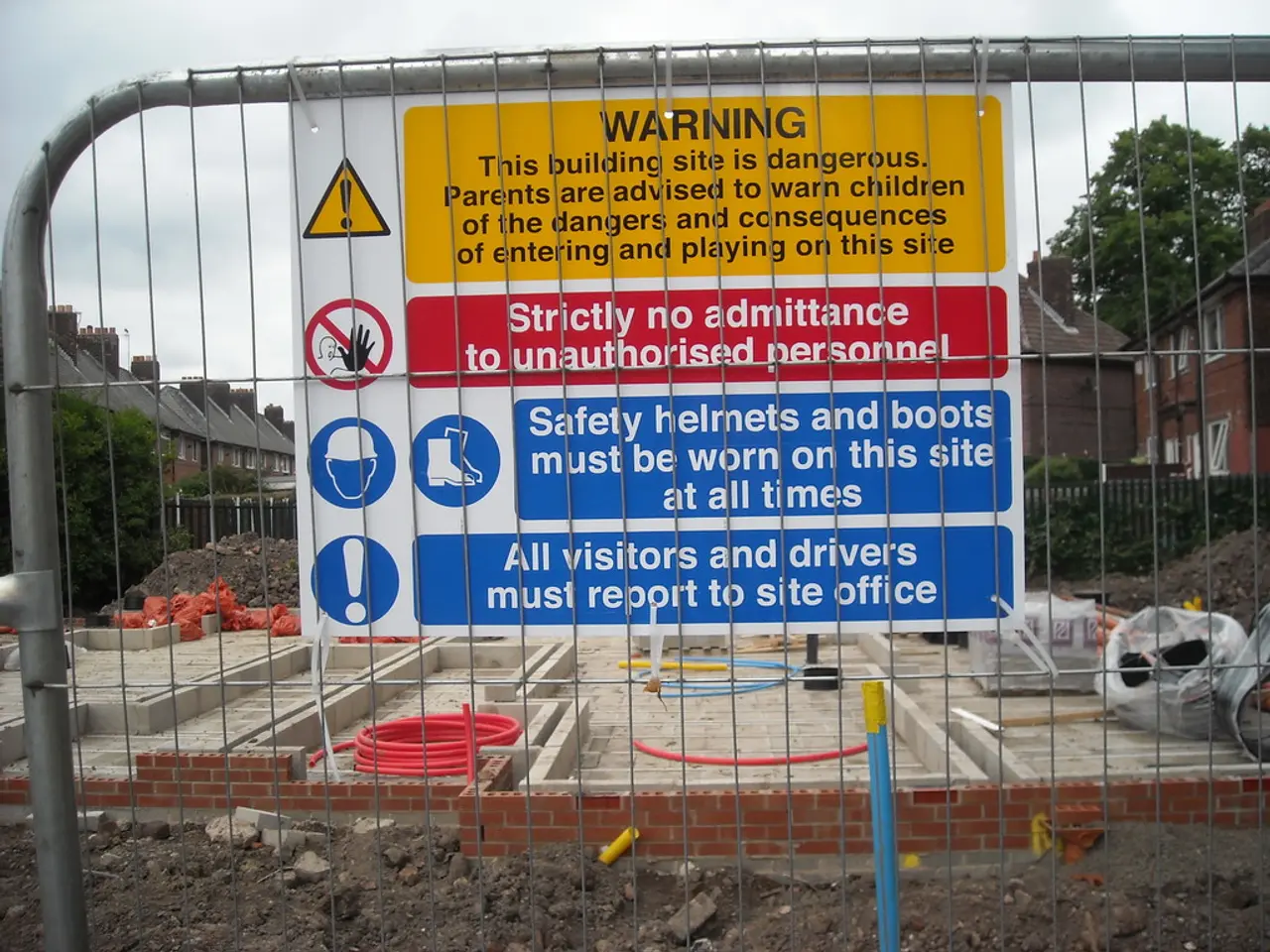County officials taken aback by DeSantis administration's covert 'Alligator Alcatraz' plans revealed in emails
In a swift and controversial move, the Florida government has constructed an immigration detention center, dubbed "Alligator Alcatraz," in the Everglades. The facility, located about 45 miles west of downtown Miami, was built on a partially constructed airstrip on county-owned land in Collier County [1][3].
Governor Ron DeSantis fast-tracked the project, aiming to operationalize 5,000 immigration detention beds statewide by early July 2025. The construction was facilitated by an executive order signed by DeSantis in 2023, which allows the state to seize land and evade regulations [4].
Local officials, including Miami-Dade County Mayor Daniella Levine Cava, expressed frustration at being kept in the dark about the plans and the absence of environmental impact assessments. They requested delays to ensure due diligence, but the state declined, citing urgent operational needs to manage the immigration situation [1][2].
Emails obtained through public records reveal that local officials were unaware of the project until state teams were already on-site coordinating construction and beginning to set up temporary buildings and shelters. The project was executed in a matter of days, housing migrants in tents and trailers, and the speed meant there was little opportunity for local input or environmental safeguards [2].
Environmental groups have filed a federal lawsuit, arguing that the state illegally bypassed federal and state laws in building the facility. They warn that building in the Everglades poses ongoing risks to the fragile wetlands ecosystem [3].
Plans for the facility sparked concerns among first responders in Collier County, who questioned which agency would be responsible if an emergency should strike the site. Local Fire Chief Chris Wolfe wrote to the county's chief of emergency medical services and other officials on June 25, seeking guidance on preparations for the facility within Collier County's jurisdiction [1].
Collier County Commissioner Rick LoCastro first heard about the proposal for the detention center after a concerned resident sent him an email on June 21. On July 1, just 10 days after Collier County first got wind of the plans, the state officially opened the facility [1].
The detention center, known as the Dade-Collier Training and Transition Airport, is owned and managed by neighboring Miami-Dade County. Ian Guidicelli, FDEM bureau chief, confirmed the construction of the detention center to Dan Summers, Collier County's emergency management director, on June 23 [2].
Summers knew the place well, having done a detailed site survey a few years ago. The infrastructure at the site was described as "nothing much but a few equipment barns and a mobile home office... (wet and mosquito-infested)" [1]. A county emergency management staffer requested to be included on any site visit to the facility.
Summers repeatedly reached out to FDEM for guidance, trying to "eliminate some of the confusion" around the site. However, the lack of transparency and the speed of construction have sparked strong criticism from local authorities and advocacy groups [1][2][3].
Sources: [1] Miami Herald, "Florida governor fast-tracks immigration detention center in Everglades, bypassing local officials and environmental laws," June 30, 2023. [2] Tampa Bay Times, "Emails reveal Florida officials kept Collier County in the dark about immigration detention center," July 5, 2023. [3] Orlando Sentinel, "Environmental groups sue Florida over immigration detention center in Everglades," July 7, 2023. [4] Florida Politics, "DeSantis signs executive order to seize land for immigration detention centre," June 20, 2023.
- Amidst the controversy surrounding the construction of the new immigration detention center, known as "Alligator Alcatraz," in Florida's Everglades, local officials such as Miami-Dade County Mayor Daniella Levine Cava and Collier County Commissioner Rick LoCastro have voiced their concerns about the lack of transparency in the policy-and-legislation process.
- With the state's fast-tracked policy on immigration detention centers, including the construction of "Alligator Alcatraz," political tensions are rising among local authorities and environmental groups, who argue that general-news issues like environmental impact assessments and collaborative decision-making have been overlooked in favor of usurping federal and state laws.






